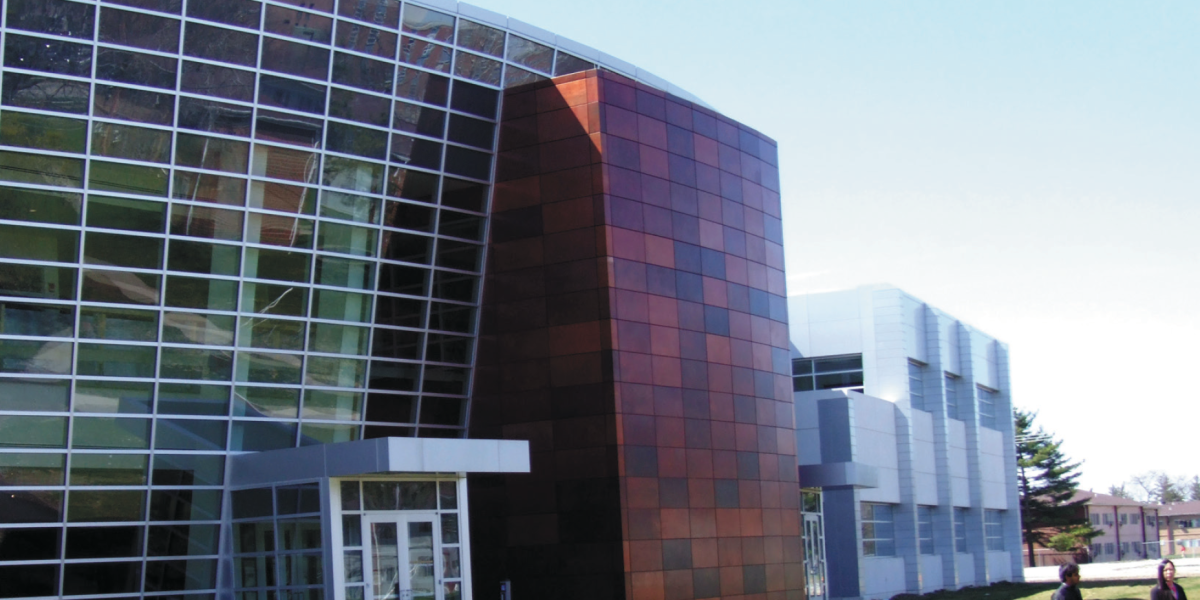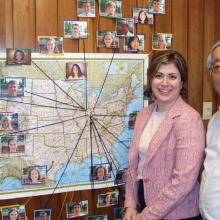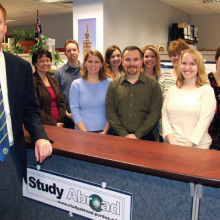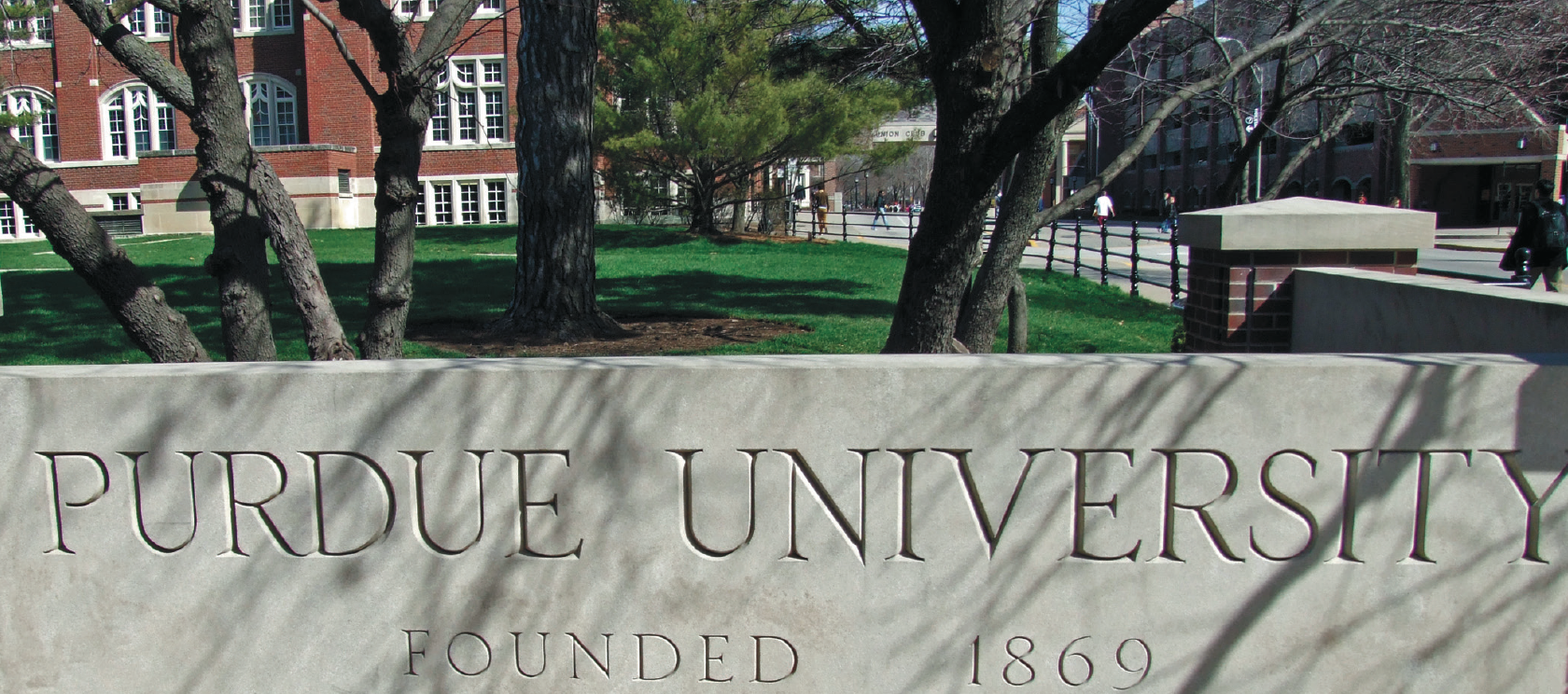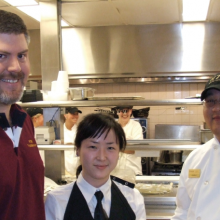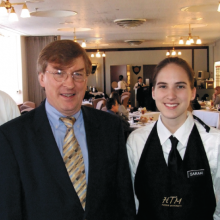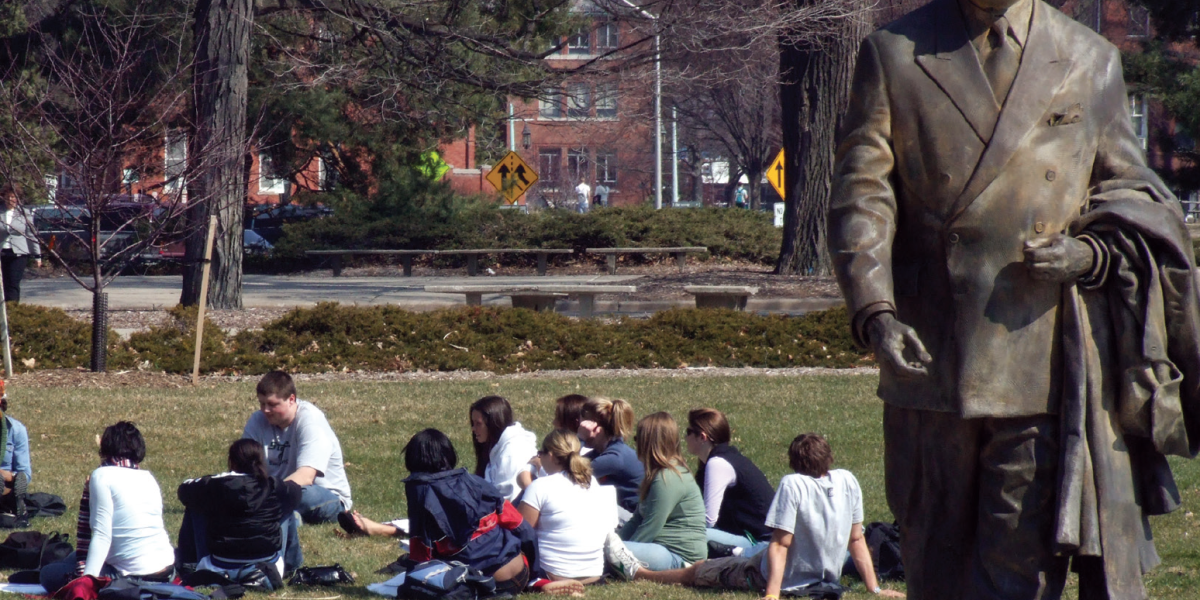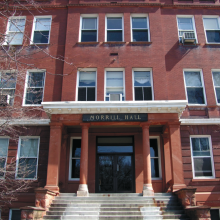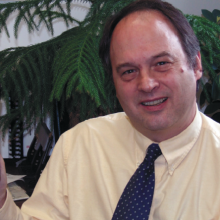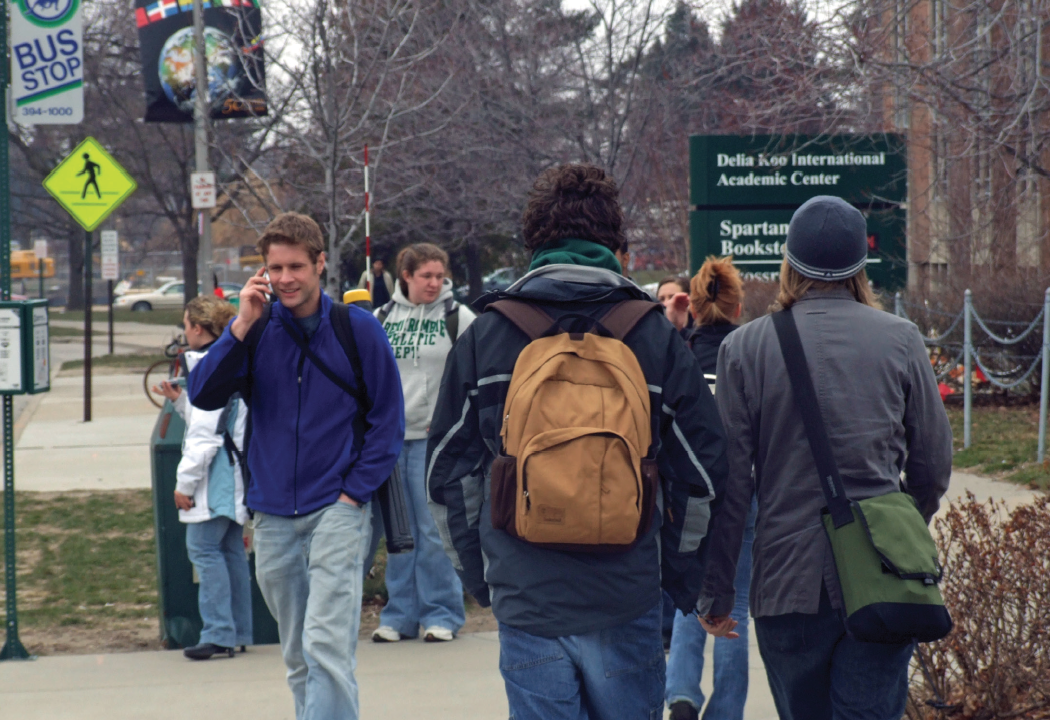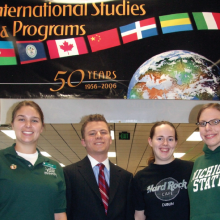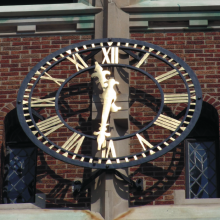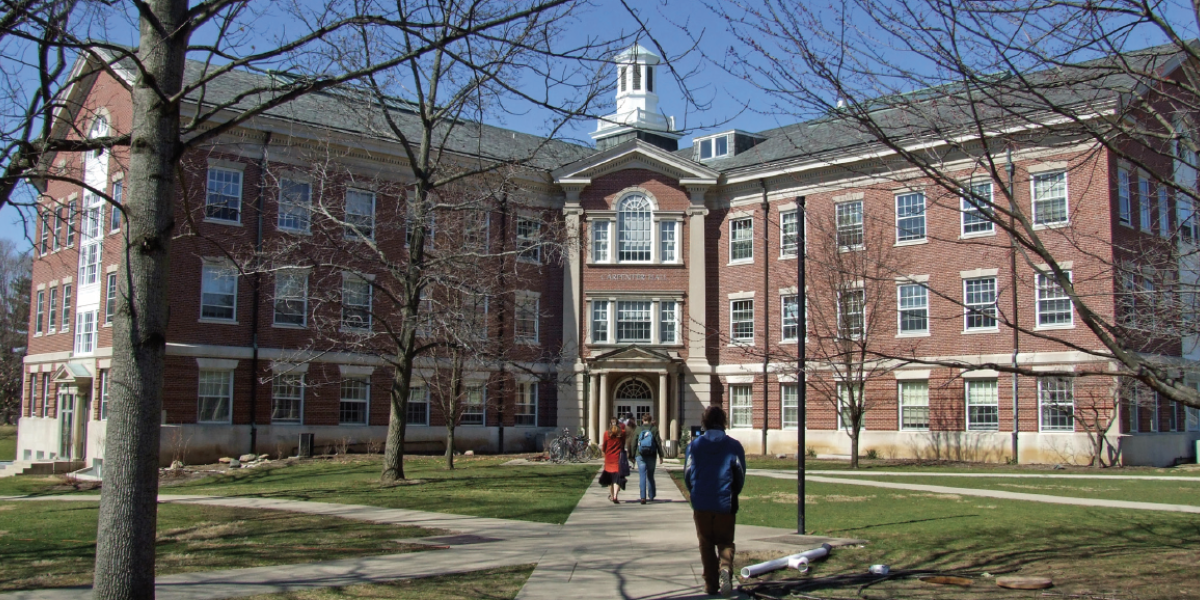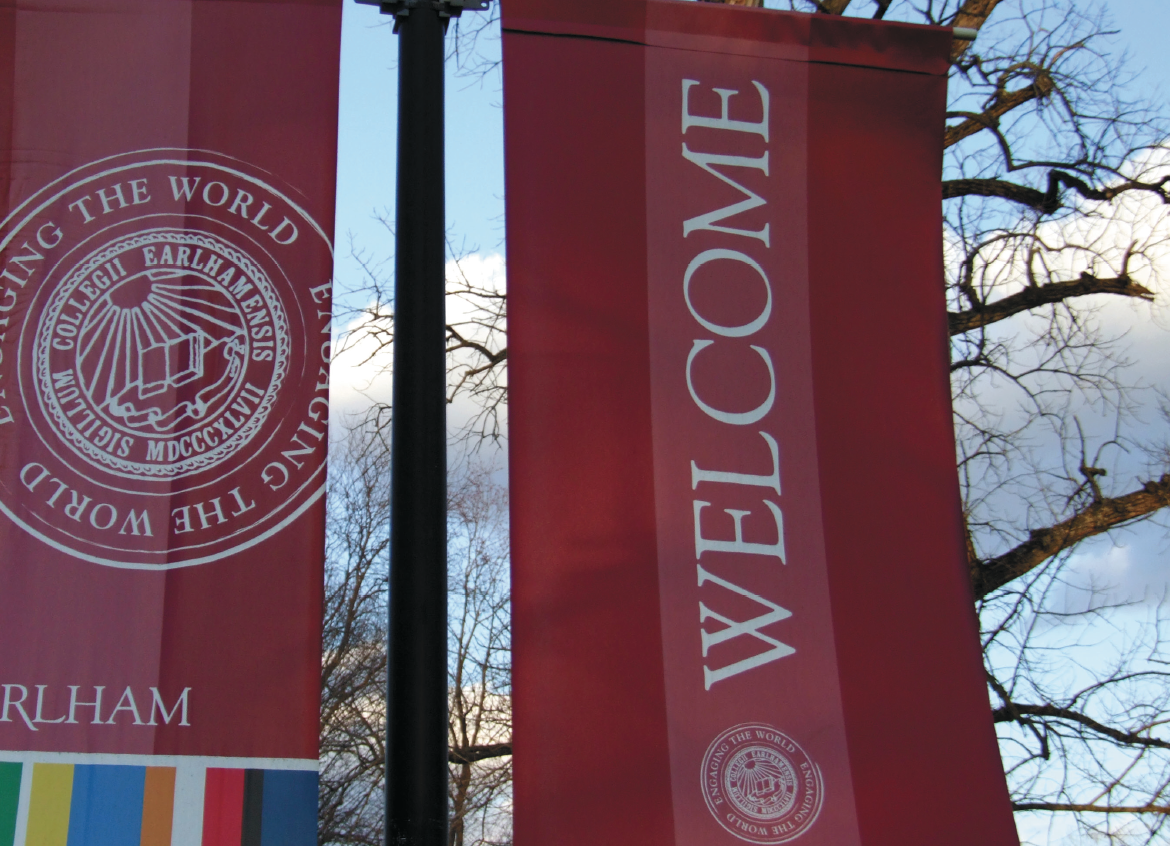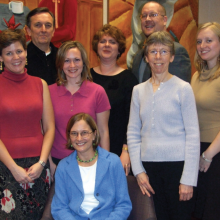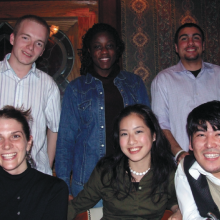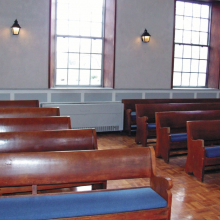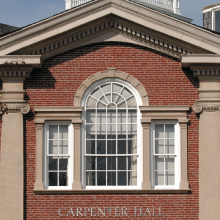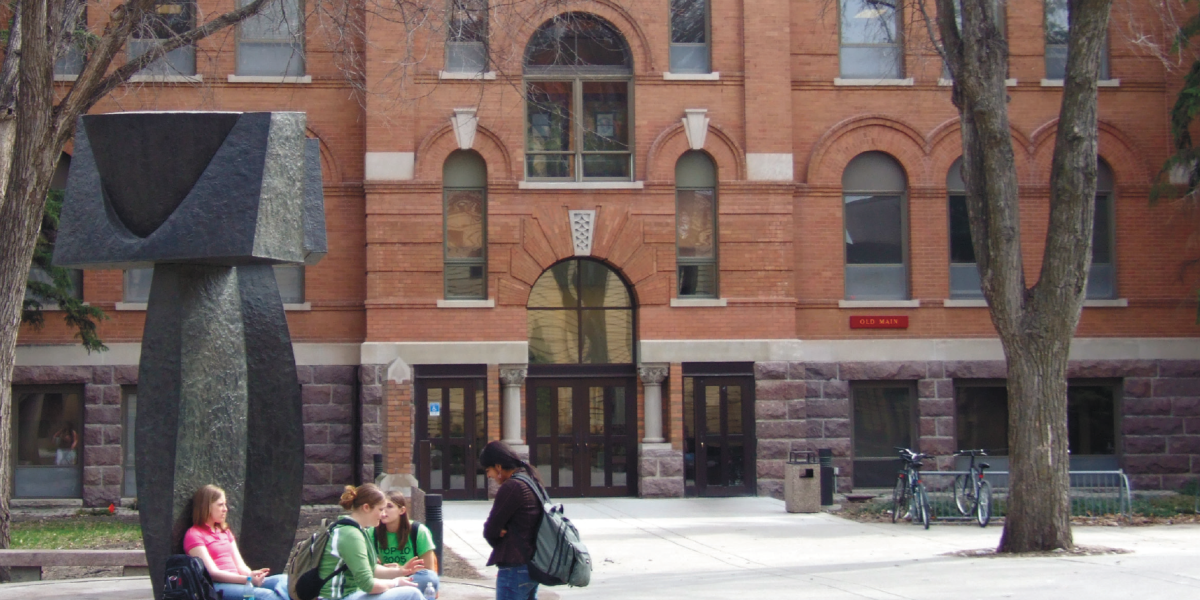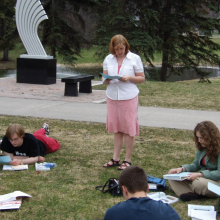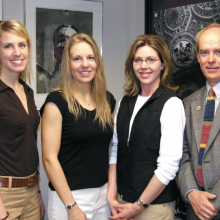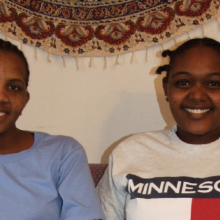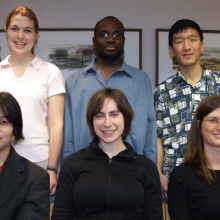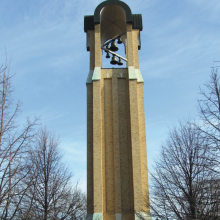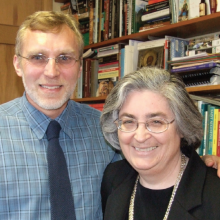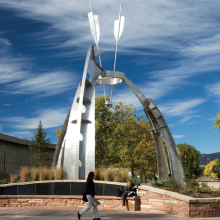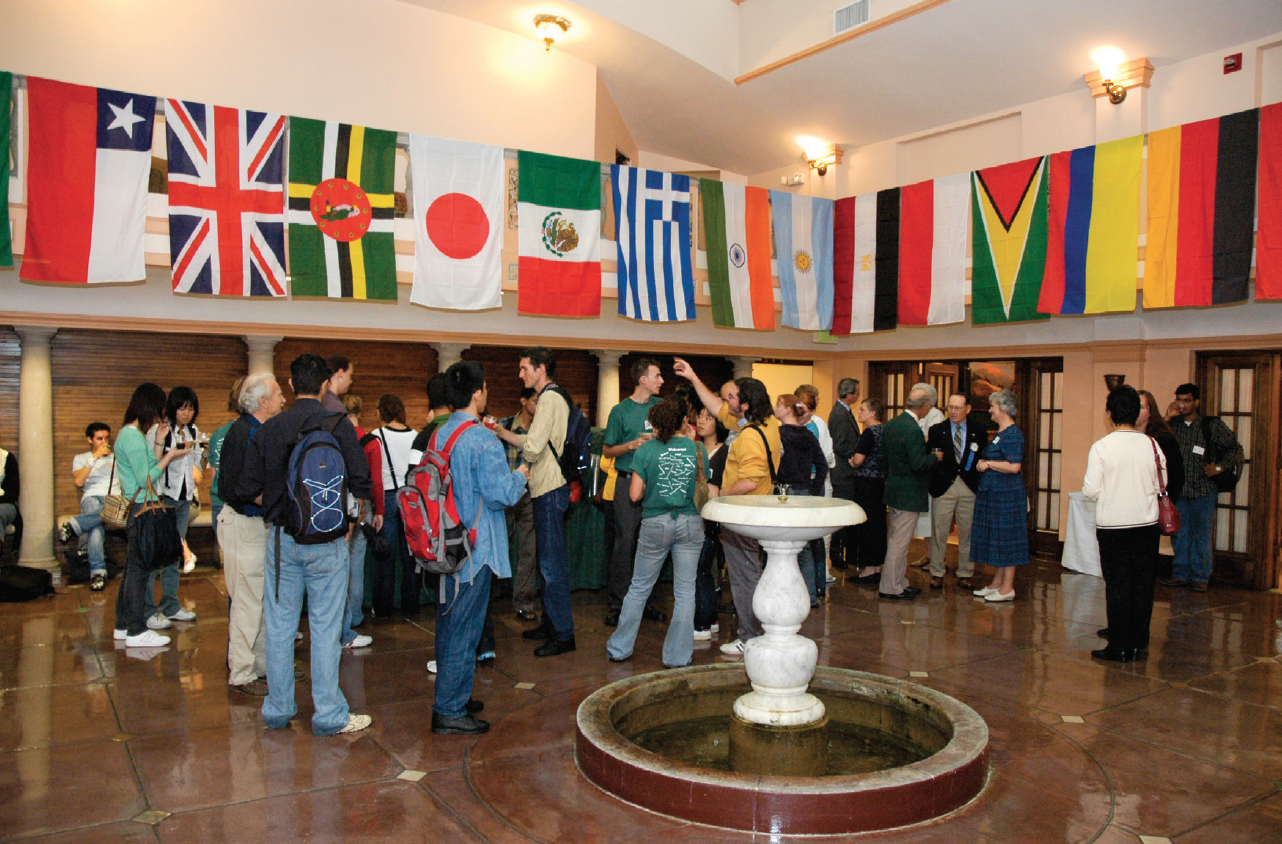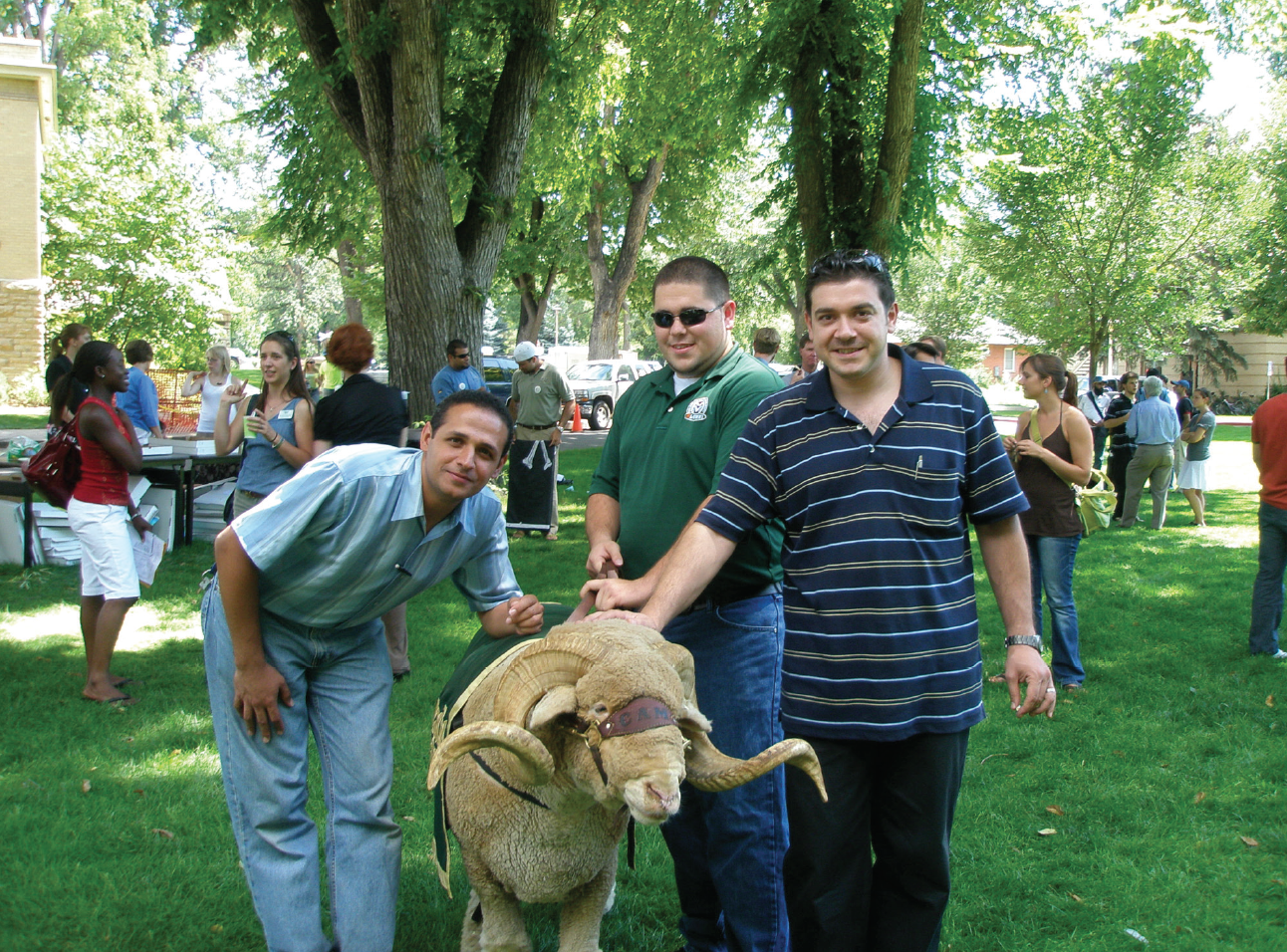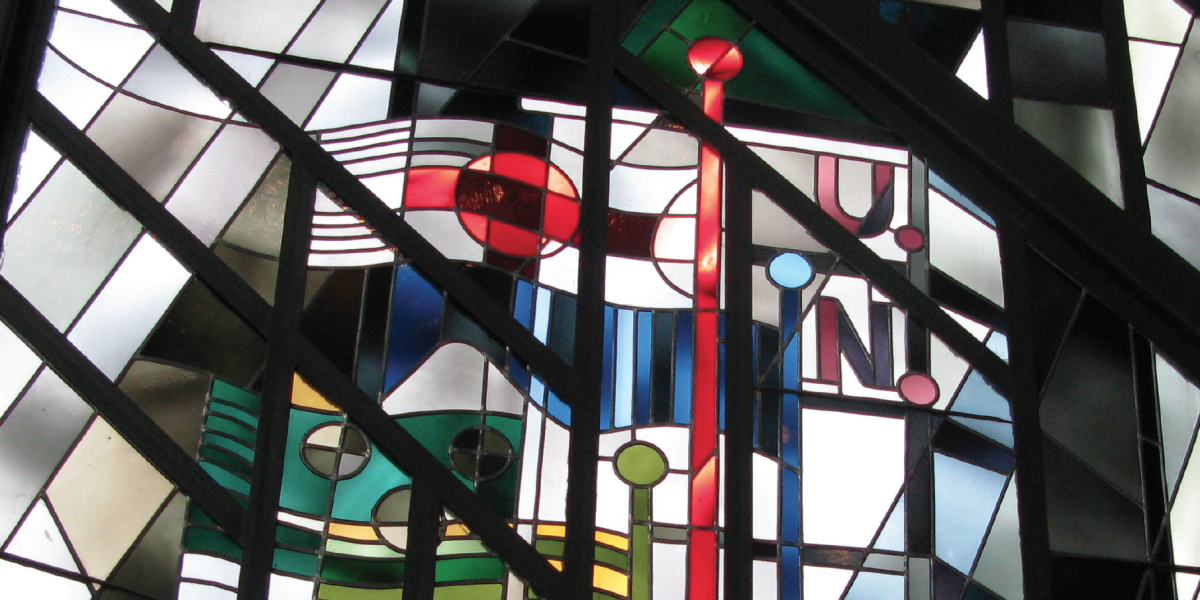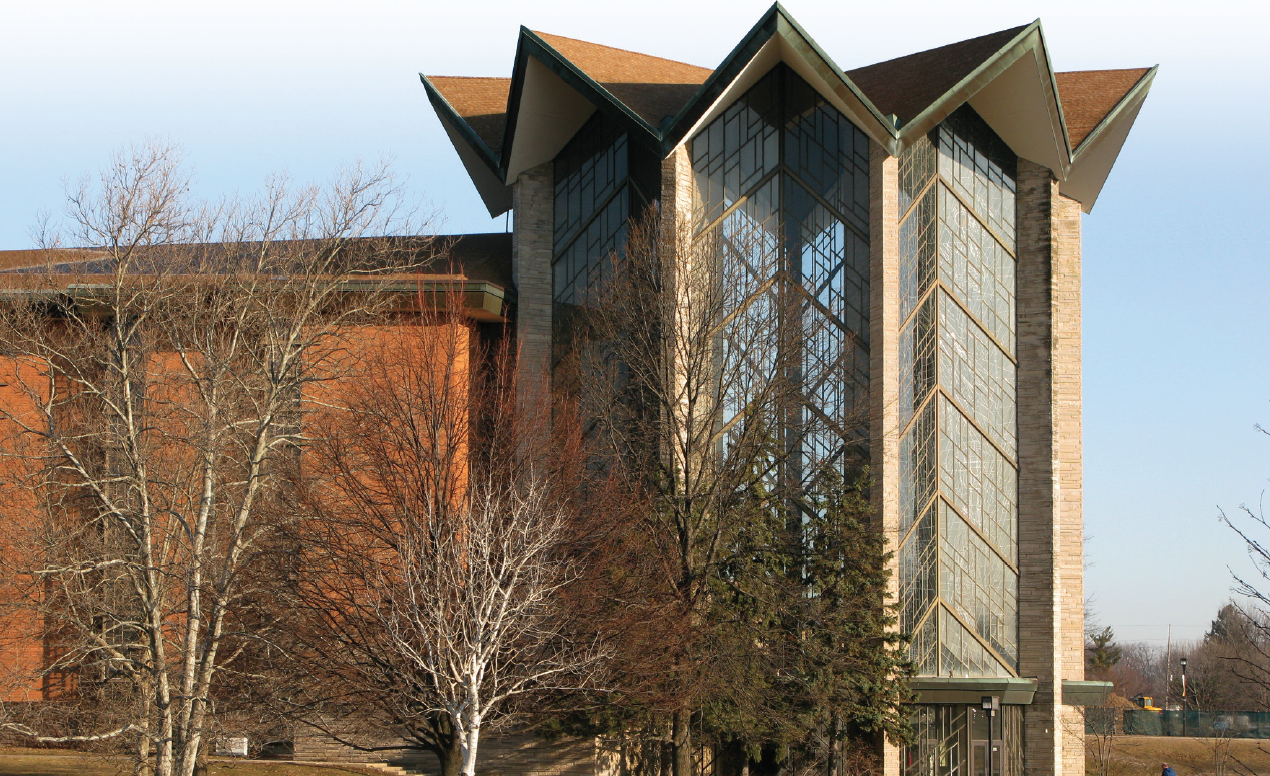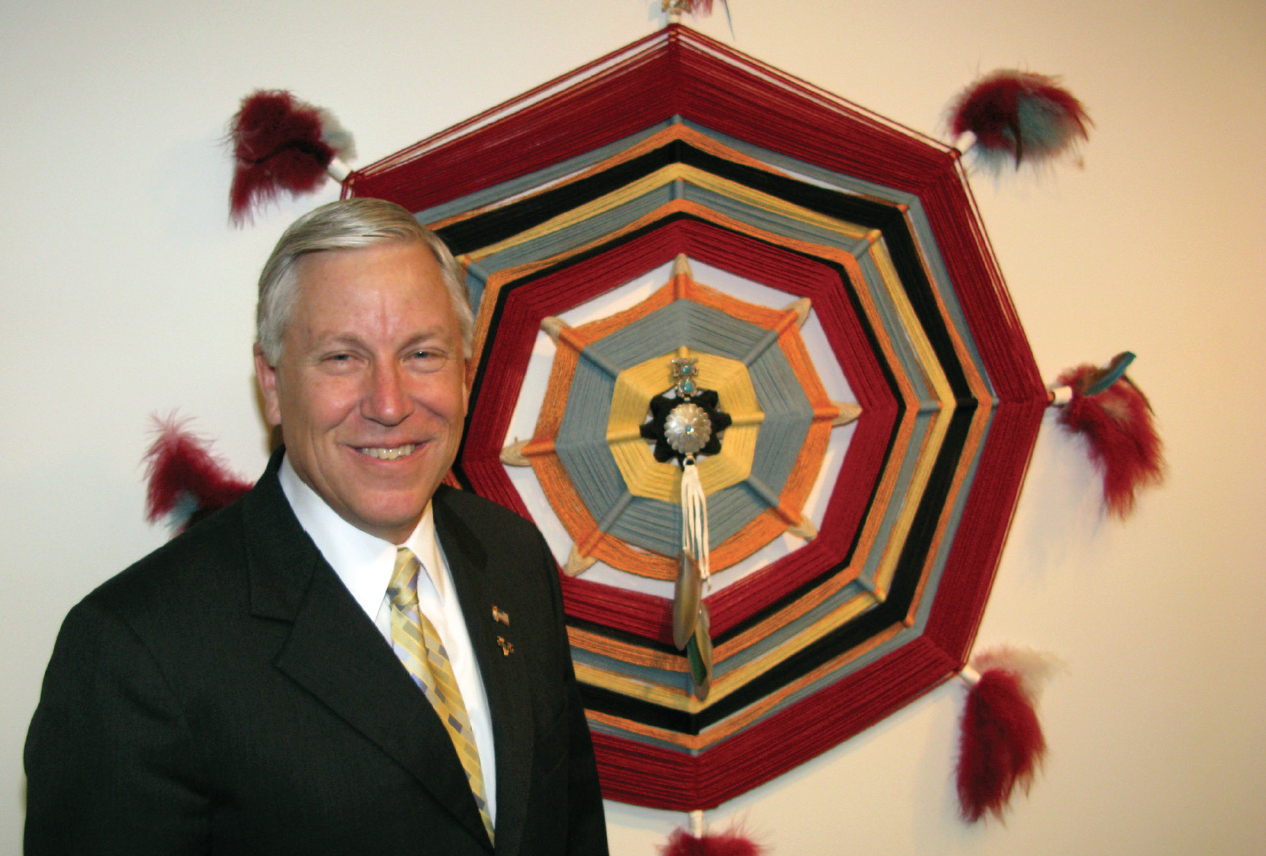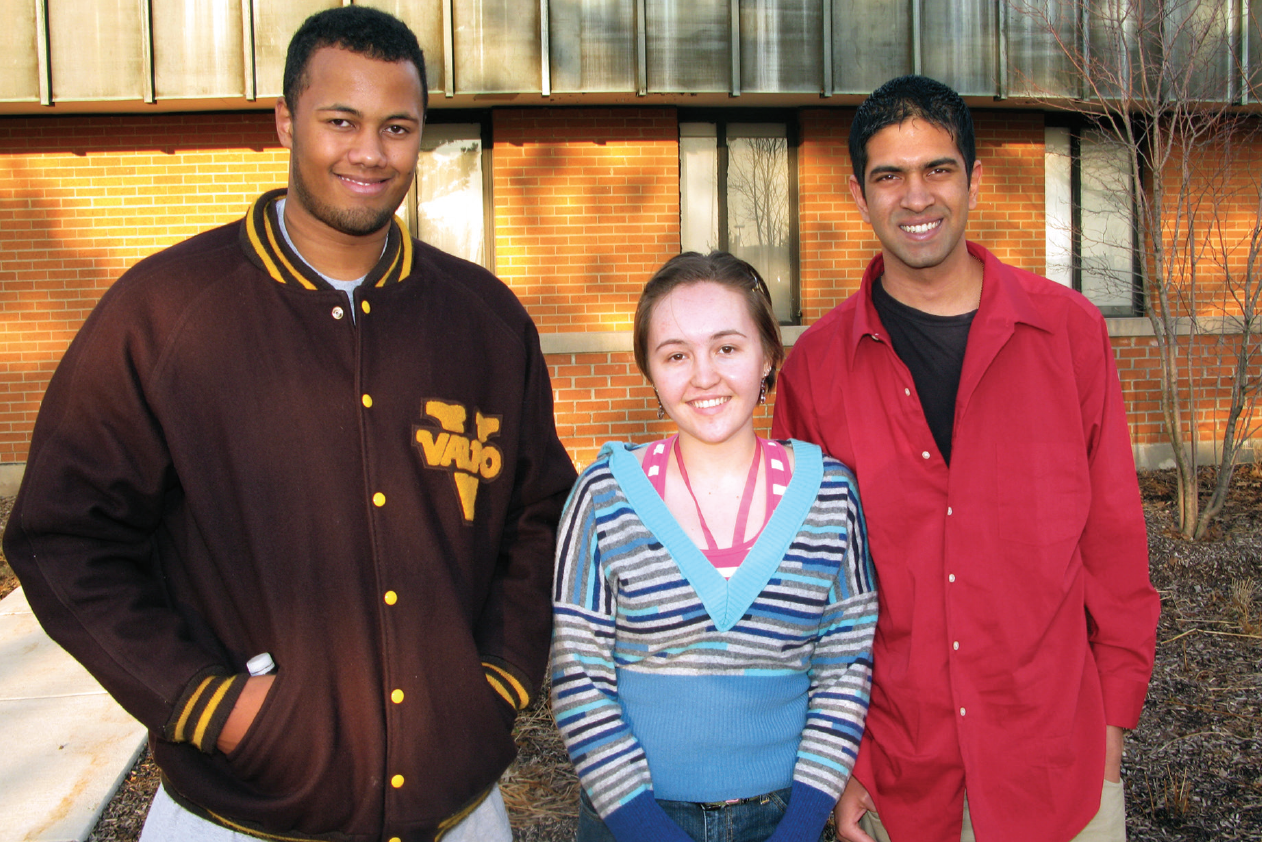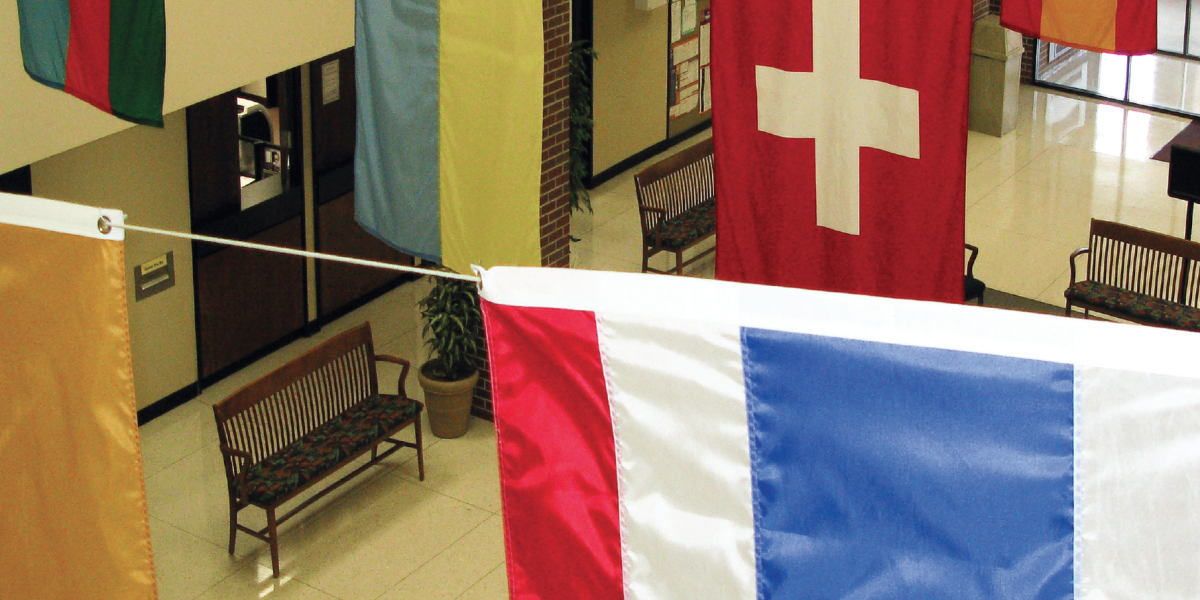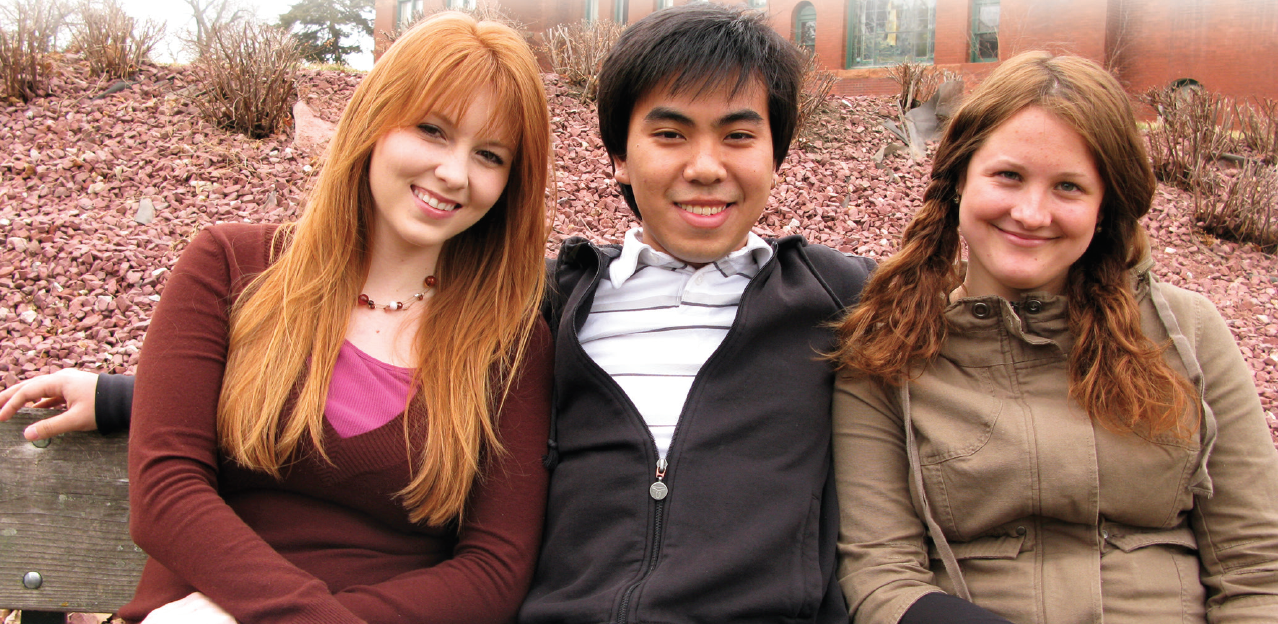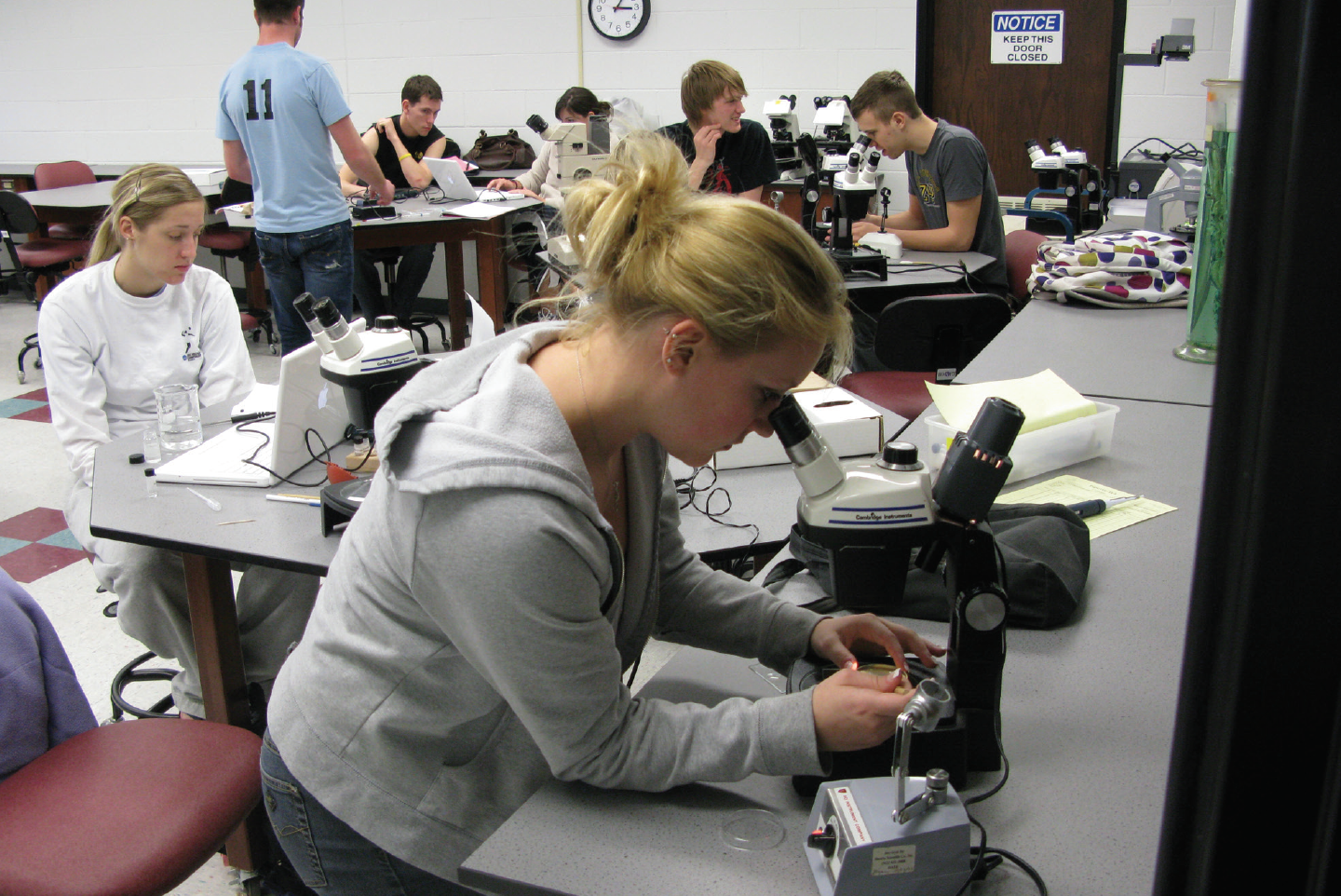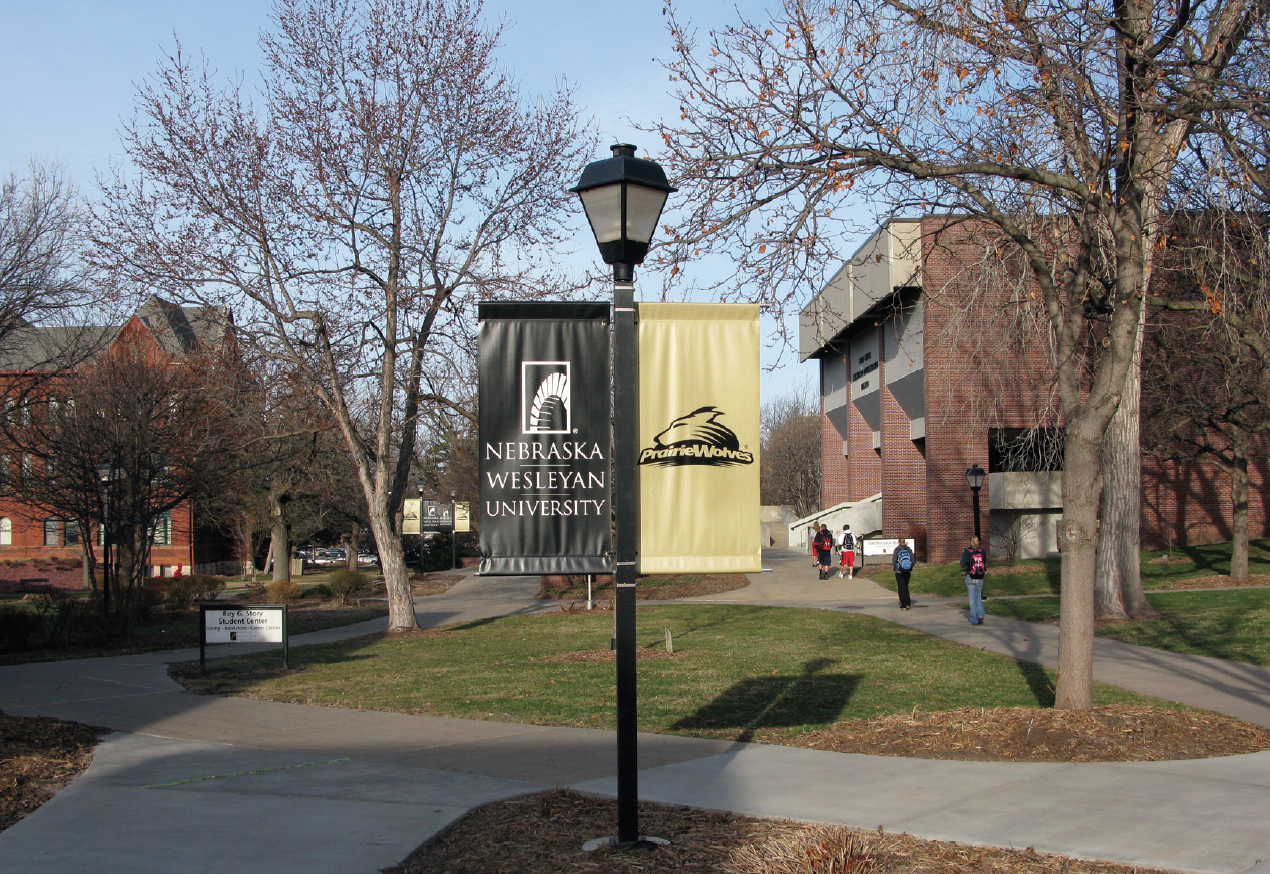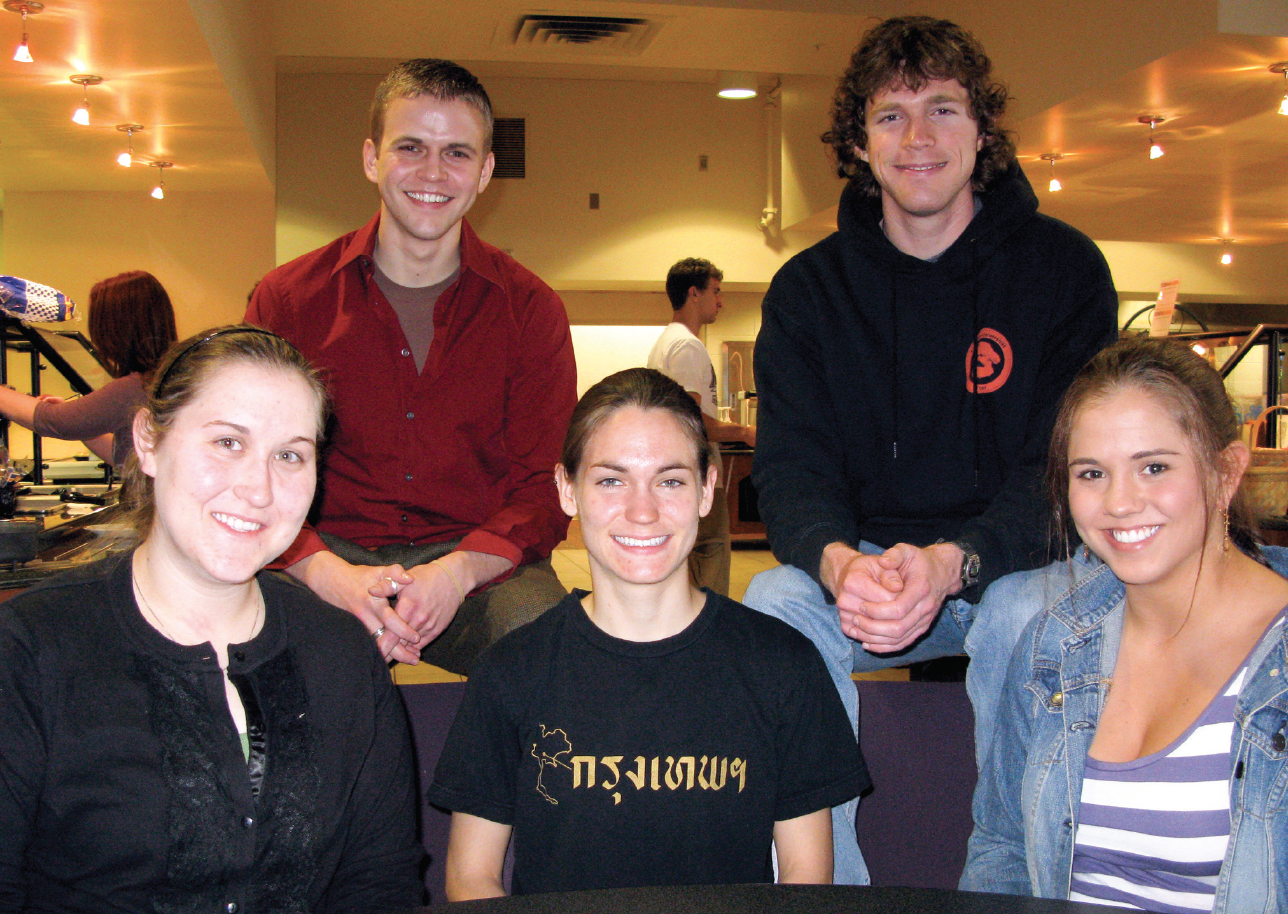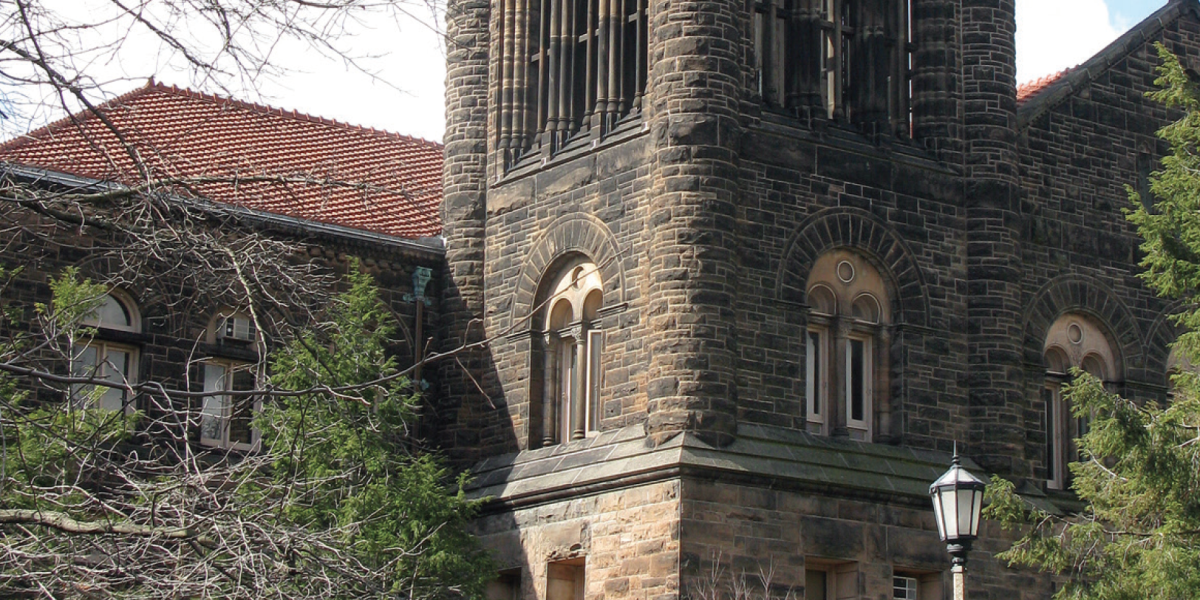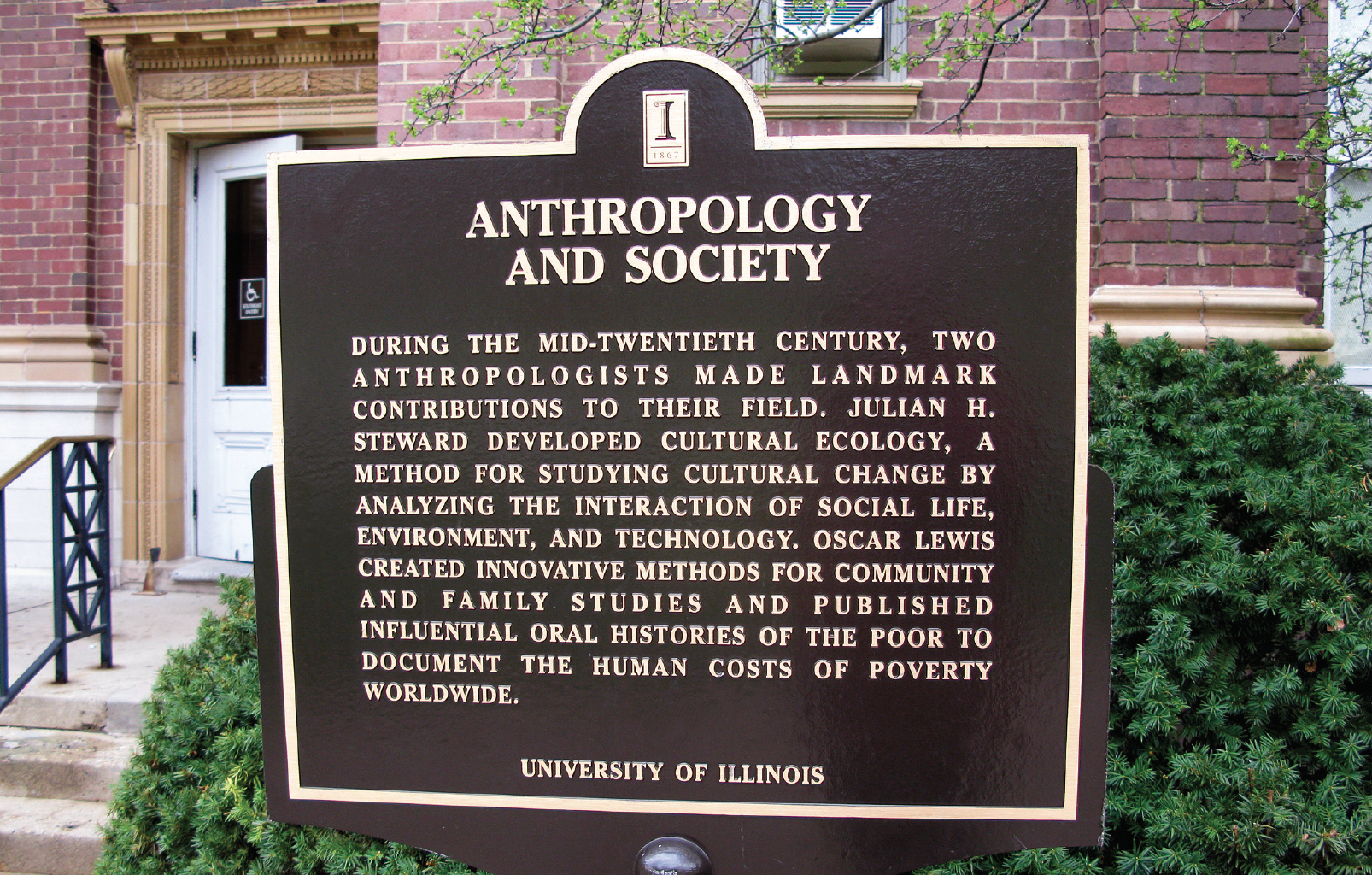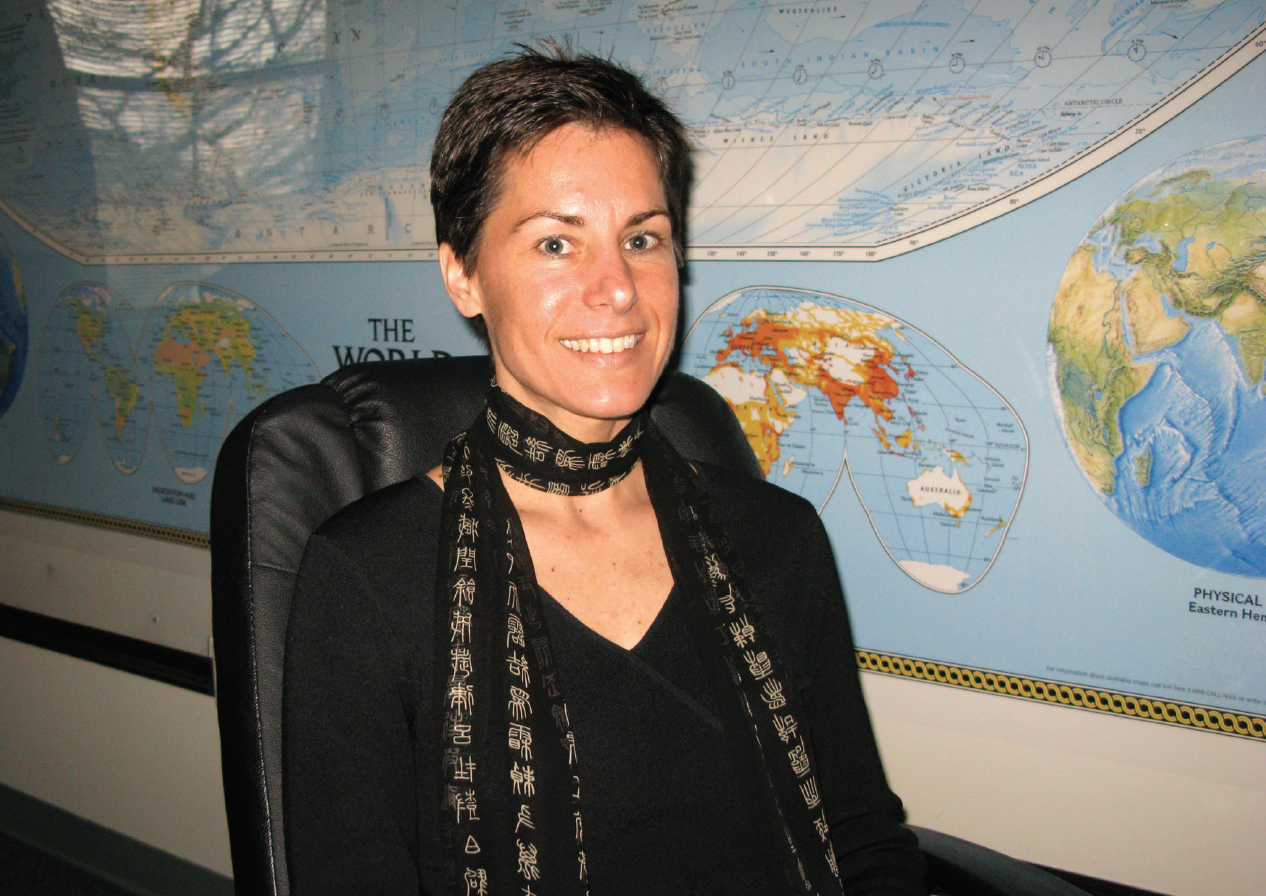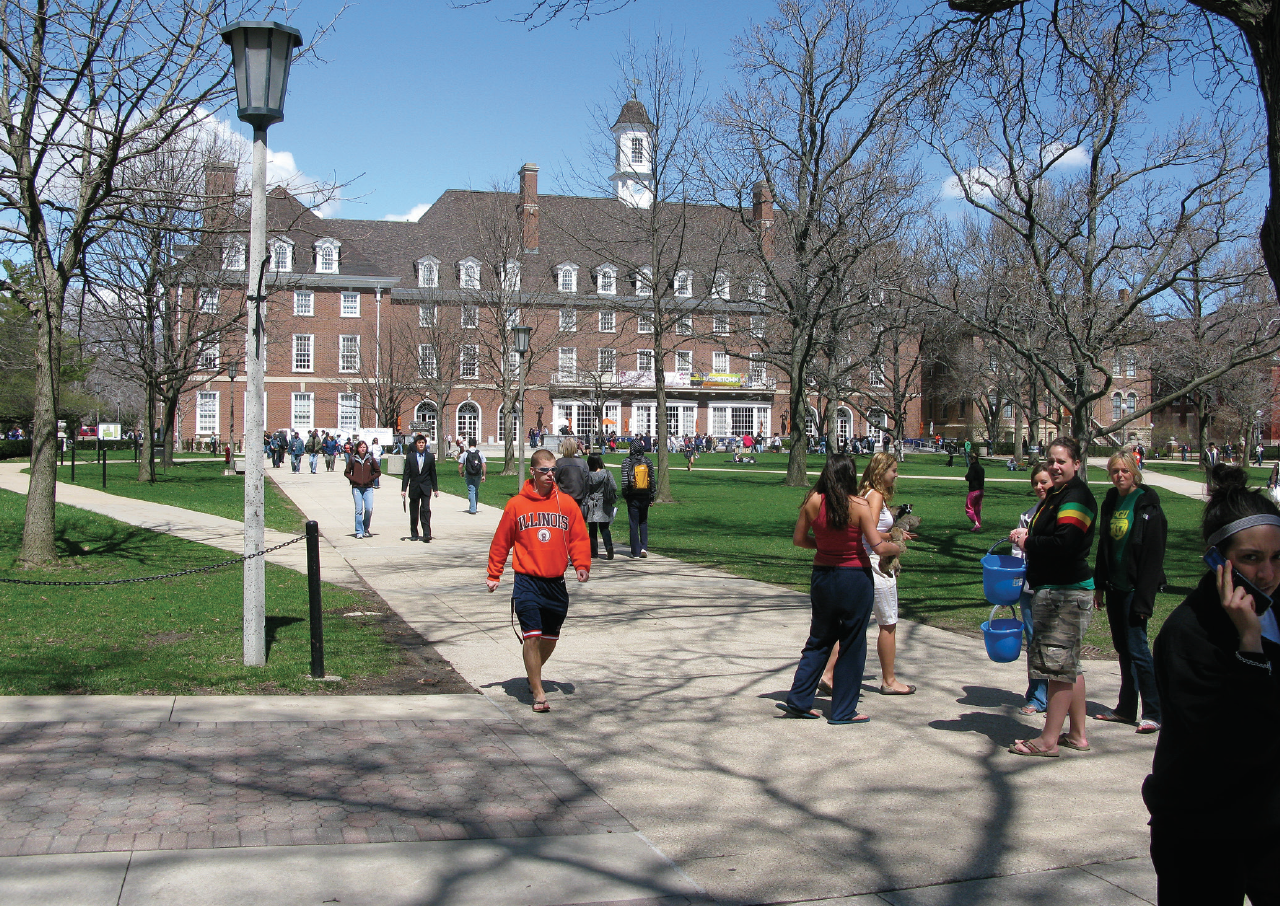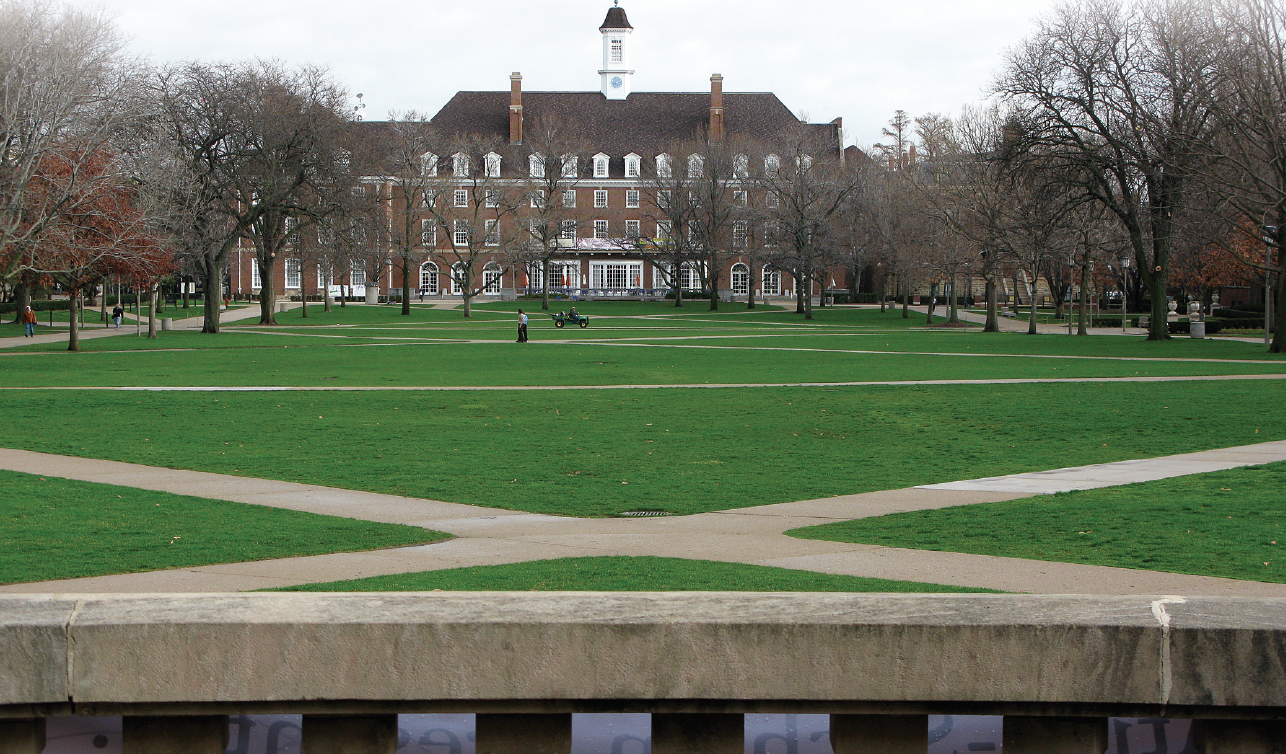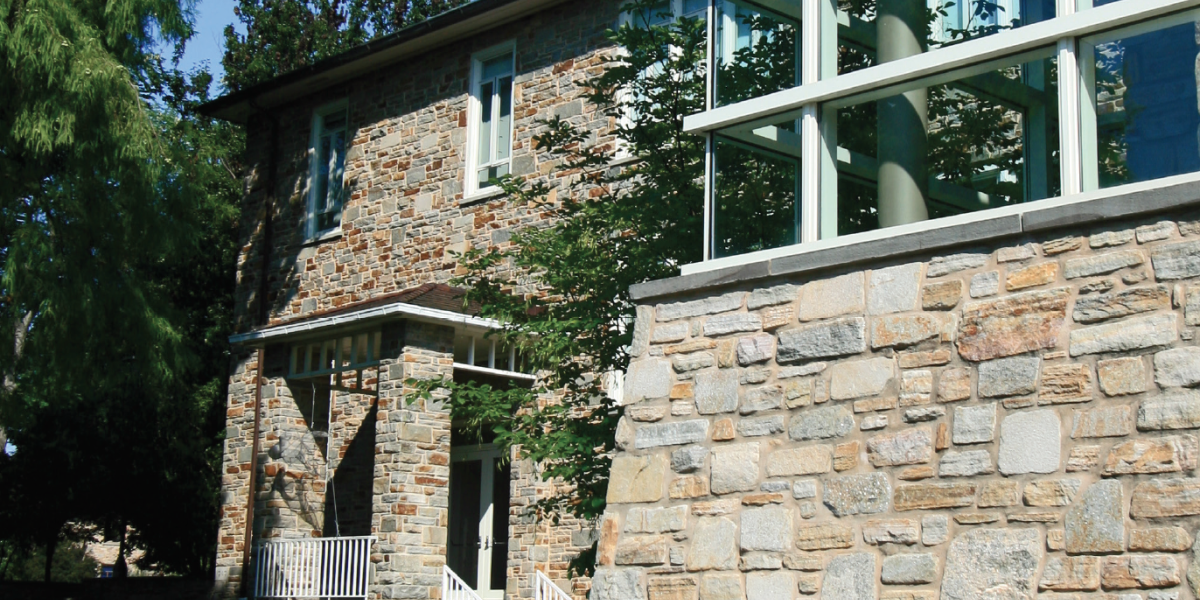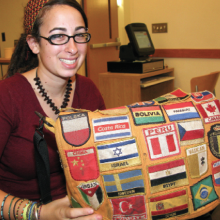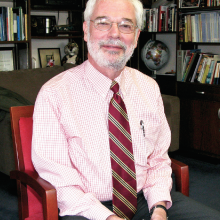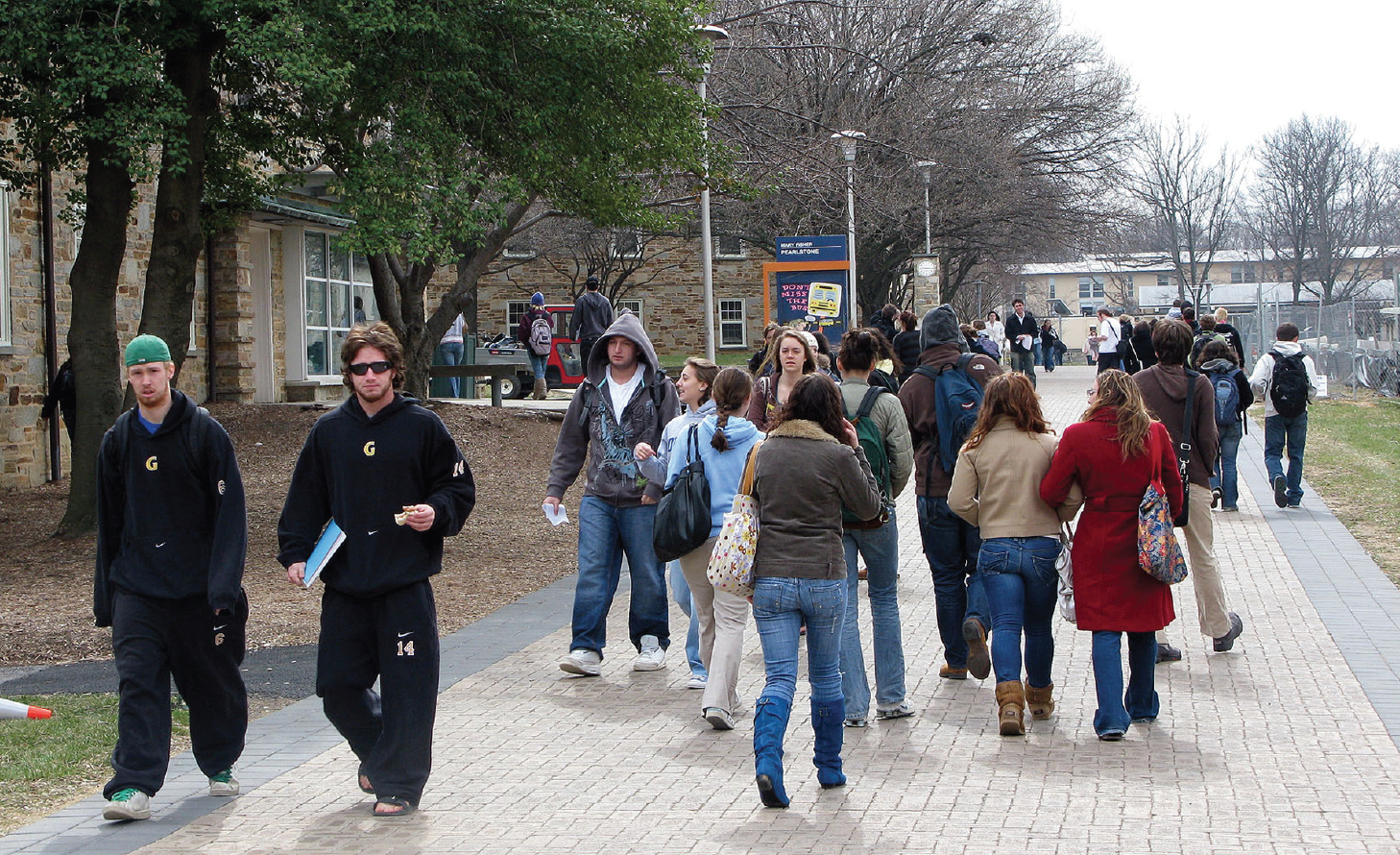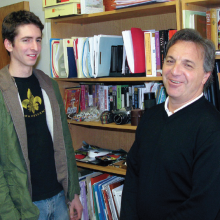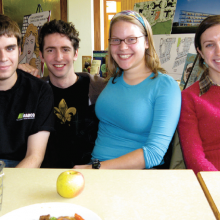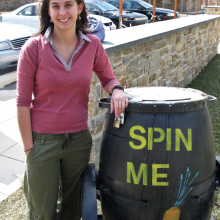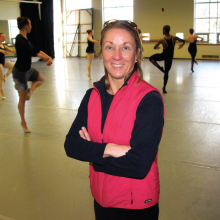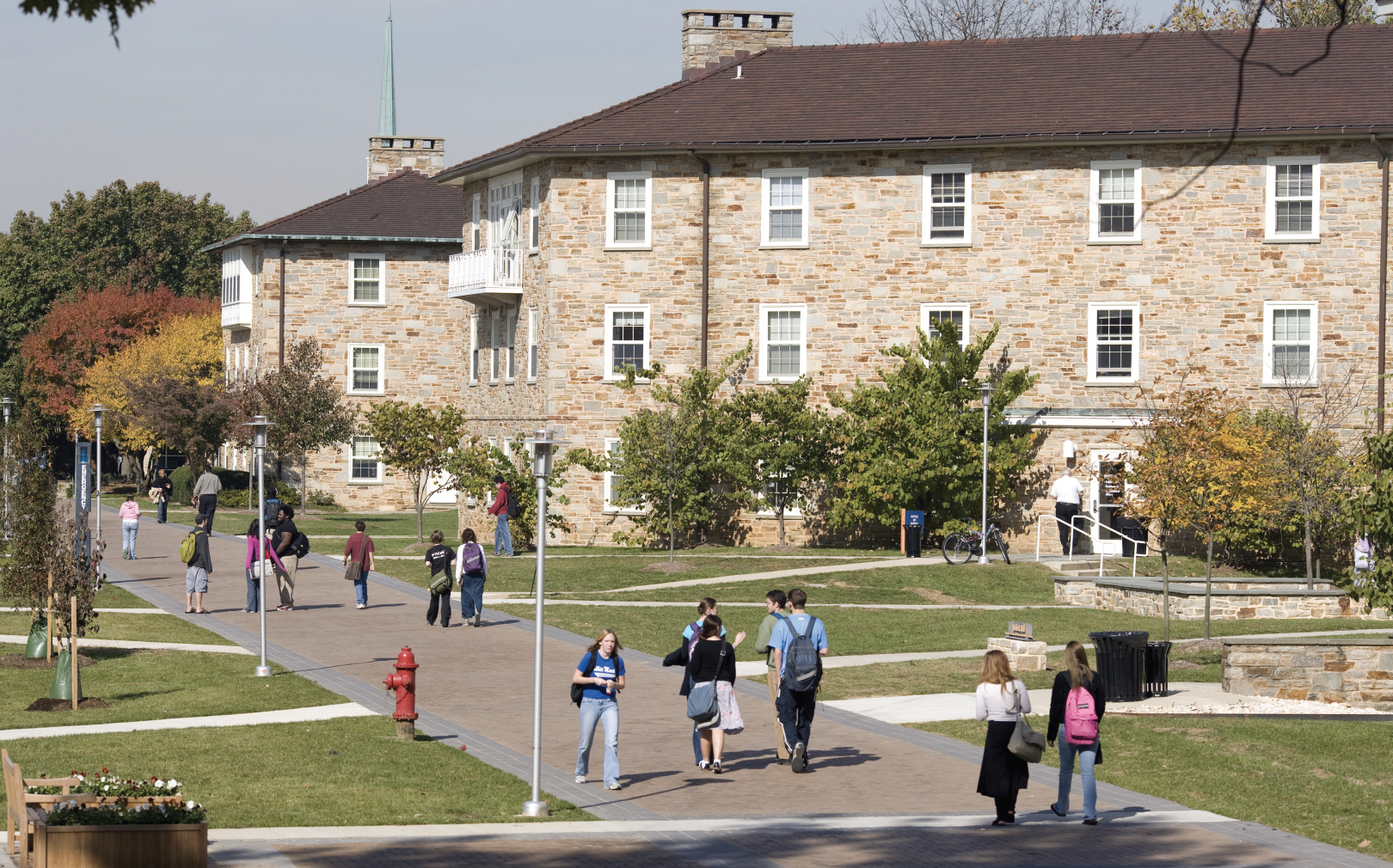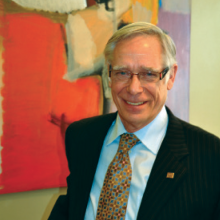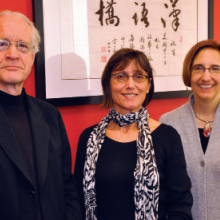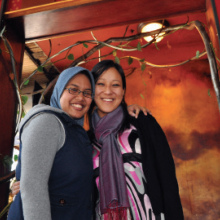2006 Comprehensive Purdue University
From the construction cranes that tower over the future Neil Armstrong Hall of Engineering to the muddy terrain outside the Birck Nanotechnology Center—open but not yet landscaped—Purdue University has the hallmarks of an institution on the move. Purdue has embarked upon an audacious campaign to expand the Boilermakers’ already considerable presence in engineering, science, technology, and agriculture. The Nanotechnology Center, with a clean room behind its shimmering glass facade, is sprouting in Discovery Park, a $100 million endeavor designed to bring innovation through multidisciplinary action. Two hundred new faculty have been hired and 100 more soon will be unpacking books and occupying new labs on the West Lafayette campus. The university is carrying out a strategic plan with the aim of “leading the world in the basic and applied sciences and engineering and improving society at home and abroad.” With such a lofty goal, improving Purdue’s international reach has been central to President Martin C. Jischke’s strategy.
Refusing to Settle for Less
As an engineering Mecca, Purdue long has had globe-trotting professors and an international roster of graduate students. But it did not create an Office of International Programs until the mid-1990s. It already enrolled 2,600 international students when Mike Brzezinski, director of the Office of International Students and Scholars, and Dean of Admissions Doug Christiansen proposed a three-year blueprint with a six-figure price tag to step up international recruiting. A senior administrator offered $40,000 for the first year’s expenses “until we see how it goes.” They turned down the $40,000.
The administrator “wasn’t very pleased. ‘What do you mean you’re not going to take it?’ I said, ‘I’m trying to be a good steward here. One year in and out of the market on the lower end won’t do it,’” Christiansen recalled.
“He called us back two or three days later and said nobody had ever turned down money before and we must clearly believe in what we were doing, so he funded all three years,” said Christiansen.
Over the next decade, Purdue boosted international enrollment to 4,831 and tripled the number of international undergraduates. In the 2005 Open Doors report by the Institute of International Education, it ranked No. 6 in international enrollment, trailing only the University of Southern California, the University of Illinois, the University of Texas, Columbia University, and New York University (Purdue ranked No. 3 among public universities).
“The reason international recruiting works at Purdue is because our two teams work together,” said Brzezinski. At other universities, said Christiansen, “there is often a huge divide between the two.” The two offices split international recruiting chores, taking a dozen or more two-week trips each year to tell Purdue’s story.
In fall 1993, there were 92 international students in Purdue’s freshman class; by fall 2005, that number had risen to 401. Brzezinski and Christiansen (who recently became Vanderbilt University’s associate provost for enrollment and dean of admissions) have given workshops on how Purdue engineered this international growth spurt. Peers always are surprised to hear it was done by collaboration and not “administrative force,” said Christiansen.
Sometimes, even they are surprised at how far that word has gotten. When Brzezinski visited the University of Kuwait in 2005, the provost proudly showed him the screensaver photograph on his laptop computer: a scene of the Purdue campus in winter. “I was there. I took that,” said the provost. His son, unbeknownst to Brzezinski, was a Boilermaker.
While international students can secure research and teaching assistantships to pay for graduate studies, the families who send sons and daughters from other countries to Purdue for bachelor degrees generally must bear the costs themselves. Tuition, room, and board now top $31,000 a year, versus $17,000 for in-state residents. President Jischke explains Purdue’s growing popularity this way: “Here we are in the middle of the country in a modest-sized community in an environment that is safe. We have a reputation of being a serious, hard-working institution; not a lot of frivolity here. It fits with what these families want for their kids.”
Building on Engineering, Agriculture, and Management Strengths
Jischke, a former president of Iowa State University, said, “The countries that enroll the largest number of international students here tend to be developing countries. And if you ask in a developing country, ‘What kind of education would best prepare you for the future?’ you’d describe Purdue to a T: agriculture to feed people; science and technology to grow and globalize that economy; modern management techniques of the sort we develop in the Krannert School of Management. These countries also need to grow their pharmaceutical industries. It all lines up with what Purdue is good at.”
Almost 6,300, or more than 20 percent, of Purdue’s 31,000 undergraduates are prospective engineers. Purdue was founded in 1869 as a land grant institution with the help of a $150,000 gift from local businessman John Purdue. The fledgling university honored its benefactor’s request to bury him on the lawn in front of University Hall.
Purdue soon became an agricultural powerhouse. The international programs office, in its first incarnation, was housed in the College of Agriculture, and it was from there that Purdue began a concerted effort to encourage study abroad.
As recently as the late 1980s, only 30 Purdue students studied abroad each year. The number inched up to 222 in 1995 and topped 400 by 2000. Since then, the growth accelerated to 1,025 in 2004-2005. Thanks to an infusion of funds from President Jischke and Provost Sally Mason, more than a quarter of the students who studied abroad in 2005-2006 received scholarships averaging $550.
Flexibility Has Increased
Participation Two thirds of these students take courses taught overseas by Purdue faculty during the summer or “Maymester” or on shorter trips during spring break. The summer courses— more than 30 were offered in 2006—last six to eight weeks. “Longer is better than shorter, but something is better than nothing. If even a short-term program is done well, we think it can be the start of a transformation for the future,” said Brian Harley, director of the Office of Study Abroad.
Dean of International Programs Riall W. Nolan makes no apologies for the profusion of summer programs. “You’ve got to face reality. A lot of these students have obligations. They have families, they have jobs, they have research projects, they have loans to pay off. To an increasing extent, students want less than a semester or full year abroad,” he said.
Nolan, an anthropologist and onetime Peace Corps volunteer in Senegal who speaks Wolof, Bassari, Melanesian Pidgin, and French and has taught in Papua New Guinea, Tunisia, and Sri Lanka, said, “This is a controversial point, but I’m of a mind that the benefits of learning internationally can be accrued in as little as a week.”
“We took incoming freshman for five days up to Québec last summer and I would maintain we fundamentally changed their world view. They don’t see themselves in the same way,” said Nolan, who in addition to scholarly works such as Development Anthropology: Encounters in the Real World has written books for armchair adventurers and travelers such as Bushwalking in Papua New Guinea.
When Purdue began a University Honors Program in 2005, it offered the 74 freshman an opportunity to study abroad before setting foot inside a classroom in West Lafayette.
Thirty-eight boarded buses for the journey to Université Laval in Québec, where they attended seminars on U.S.-Canada relations, the Canadian health and welfare systems, and Native issues.
Honors program director Christian Oseto said, “Very selfishly, what we’re trying to do (is produce) students who at the end of four years perhaps will receive a Fulbright, a Rhodes, a Marshall, a Truman, an Eisenhower, a Churchill (scholarship). We can’t do this at the end of their junior year or the start of their senior year. We’ve got to do this from day one.”
Jischke, who pushed for the creation of the honors program, said today’s college students “are more at home in other parts of the world. They are more global in their outlook. It amazes me how readily students will pack up a suitcase, make sure they have a credit card, get on an airplane, and go anywhere in the world.”
Almost 10 percent of the Purdue Class of 2004 had studied abroad for credit. “I’d like to see 20 percent of our graduates have a study abroad experience,” said Harley, a sociologist who previously directed 11 study centers in West Europe, Asia, and Latin America for Brethren Colleges Abroad (BCA).
Harley had just returned from a frenetic trip to India where he visited 14 institutions in two weeks looking for more exchange partners. To keep Purdue’s study abroad enterprise growing, “we have to look at financial models that will make it sustainable and affordable for students. It does us no good to create new highpriced programs for students,” he said.
Men outnumber women at Purdue 3 to 2, but women outnumber men 3 to 2 among the study abroad contingent. Harley said some students shy away from studying abroad during the regular terms because of the steep demands in their majors. “Students are practical. They don’t want to risk not graduating on time,” he said. “That’s our goal, too. In the absence of flexibility—real or perceived—that’s why so many summer programs have been launched.”
Partnerships ensure that the courses Purdue students take at the Royal Melbourne Institute of Technology in Australia or at BOKU, the University of Natural Resources and Applied Life Sciences in Vienna, Austria, count toward their majors.
Purdue also has streamlined the paperwork for studying abroad. IT Director William Snyder and Internet Applications Specialist Carleigh Vollbrecht Hwang ’01 find ways to help students make sense of the myriad of study abroad options and cut through red tape. The many features on a customized Web portal called My Study Abroad include student ratings of past Purdue programs.
My Study Abroad grew out of Hwang’s frustrations as an undergraduate. “I applied to study abroad, but found the process too difficult with all the hoops you had to jump through,” she recalled. “I couldn’t get any information on financial aid, I couldn’t find anything. It was just too hard. That’s why My Study Abroad blossomed as it did.
Seedbeds for Internationalization
Andrew Gillespie, associate dean for international programs, was among the professors who made the College of Agriculture and Natural Resources a seedbed for Purdue’s internationalization. The forestry professor codirected a summer program on sustainable land use that alternates between Purdue and SLU: Swedish University of Agricultural Sciences in Uppsala, Sweden.
Forestry is a prime example of an industry that has globalized, said Gillespie. “Look at Brazil. The trees they grow in Brazil for paper are Loblolly pines from the Southeast United States. Our companies shipped down the species, and now Brazil is growing them faster than we can in the states. Brazil also is growing our soybeans at a very competitive rate.”
“Indiana ships logs out for processing to China, which returns them as furniture. The Chinese have the same species (of trees) we do. Once they figure out the physical properties, they’ll be using their own resources to make that furniture,” said Gillespie. “We’re part of a global society that includes resources, markets, food, energy. It’s critical that we get our students out to see what’s going on in these local markets to see how other people think about and deal with similar issues in different ways.”
The College of Agriculture and Natural Resources sends 150 to 170 students to study abroad each year. Linda Vallade, program leader for study abroad, said, “Even if these students don’t work abroad, a lot will work for global companies. They have to learn what other countries need.” The College of Agriculture offers semester-long programs in Australia, New Zealand, France, Ireland, Sweden, and Honduras.
Local Students Benefit from Internationalizing
Two-thirds of Purdue undergraduates hail from Indiana, and almost half its 380,000 alumni live in Indiana. Jischke said that underscores the importance of “Hoosier kids having an international experience in order to get a first rate education.”
“Indiana is affected by these international forces as much as any state in the nation,” added Jischke. “We’re the most manufacturing intensive state in the nation, and the impact of China, India, and the other countries in Asia in particular on manufacturing has been substantial,” he said.
“For these students to get not just good jobs but be leaders in the Indiana economy, they need an international experience to equip them for the world,” he said.
Connecting to Asia
More than half of Purdue’s 4,831 international students in 2005 came from India (1,020), China (782), and South Korea (680); Taiwan, Indonesia, and Malaysia accounted for 600 more. “The Asian basin is a huge supplier of talent,” said Jischke. “With their booming economies, China and India are growing a middle class and upper middle class that has the capacity to send their children to the great universities of the world, including Purdue.” Jischke credits his predecessor, Steven Beering, with recognizing that early on.
Purdue has opened alumni clubs in India and China, looking to bolster its Asian connections through the loyalty of alumni, many in top posts in commerce and the academy. Jischke is spending $150,000 a year on an Asian Initiative that funds Purdue faculty to engage in joint research projects, such as a science education project with Peking University and a partnership with the Indian Institute of Technology in Mumbai on factoring community needs into climate change models. The coordinator of the Asian Initiative is Matthew Sikora, a former scheduler for Indiana’s governor who also worked on Asian trade missions for the state.
Part of his job, said Sikora, is simply to make sure that Purdue’s 1,800 faculty members are aware of what each other is doing in Asia, and to get them to consider how to collaborate. “I’m the matchmaker,” said the 30-year-old Sikora. “Our professors see each other in an airport in Beijing, not having known this other person was there. Not that we’re trying to stop it; faculty can do what they want, and we encourage that,” he said. “But when they go out there, we want them to connect with two or three alumni, host an event, or do something (extra).”
Sikora accompanied Harley on the fast-paced trip over spring break to visit 14 institutions across India in search of more students and partners. “In one case they told us we were one of 250 overseas institutions that would visit them this year,” said Sikora. “Other universities were ready for us to sign on the dotted line because they don’t have much in the way of international collaboration going.”
At some stops, they discussed the possibilities of asymmetrical exchanges, such as Purdue’s sending 20 undergraduates to study in India for two weeks in the summer, with the host institution in return sending a graduate student to West Lafayette for a full semester.
Mike Brzezinski, who lived in China for seven years and speaks fluent Mandarin, accompanied Richard Cosier, dean of the Krannert School of Management, on his first trip to China. Cosier and other senior administrators made three more trips over the next 12 months to lay the groundwork for Krannert’s first study abroad programs in China. The business school now has exchanges with Tsinghua University in Beijing and Guanghua School of Management at Beijing University. Krannert also struck a cooperative agreement with Zhejiang University in Hangzhou, a provincial capital.
Some 100 Purdue business students studied in China last May. Cosier said, “The interest level among our students is phenomenal; they are ready for a global experience. Now it’s up to us to provide the opportunities.”
The Krannert School also partners with the German International School of Management Administration in Hanover, Germany, to offer a Purdue MBA in 11 months. That program has produced 450 alumni in five years and served as “a great avenue to get our faculty over to Europe,” he said.
“The days of focusing on a domestic U.S. career for U.S. business school graduates are getting fewer and fewer,” said Cosier, a former planning engineer. “You could have someone graduate who might get an initial job in say, Flint, Michigan. But in a short period it’s very likely that person will be moved to an international location.”
Growing Internship Programs
Purdue students are keen on internships abroad as well. Mechanical engineers at Purdue have several pathways under an unusual program called Global Engineering Alliance for Research and Education (GEARE) that began as a partnership with Universität Karlsruhe in Karlsruhe, Germany, in 2002 and now has expanded to Shanghai Jiao Tong University in Shanghai, China, the Indian Institute of Technology in Mumbai, India, and Monterrey Tech (Tecnológico de Monterrey) in Mexico.
Eckhard A. Groll, a professor of mechanical engineering and director of global initiatives and internships for the School of Mechanical Engineering, said GEARE combines a semester study abroad with a three-month international internship in engineering and participation over a full academic year in a multinational design team project. Students from the international universities come to Indiana to take classes, work on the design projects and do internships with such companies as Cummins, John Deere, Siemens, and Ford Motor Co.
The first half-dozen GEARE students studied in Germany in 2003. By 2005, there were 15 in Germany, China, and India, and Groll projects that 22 will study abroad in 2008. “For a Midwest university, it’s still a little bit of a hard sell, but we’re on the right track,” said the German-born Groll. Although all the engineering courses are taught in English, GEARE requires the Purdue students to complete three semesters of language before heading overseas.
Only one in eight mechanical engineering students at Purdue is female, but women comprise 30 percent of those taking part in GEARE. Groll speculated that they are drawn to the challenging program by the opportunity to experience teamwork and build leadership skills. (Overall, one-fifth of Purdue’s engineering majors are female.)
The College of Consumer and Family Sciences also offers its students internships around the world, especially through its top-rated School of Hospitality and Tourism Management. Alastair M. Morrison, associate dean for learning and director of international programs, said, “We’ve had a strong focus on study abroad since 1999.” Only 14 of the college’s 1,800 students studied abroad that year. Now, 6 percent to 7 percent of the 2,000 students head overseas each year.
Morrison, a Scotsman, is a globe-trotting consultant for the World Tourism Organization and other international organizations. He was among the experts that the Beijing Municipal Bureau of Tourism turned to for marketing advice in preparation for the Beijing 2008 Olympic Games.
Instructor and Chef Carl A. Behnke has led future restaurant managers, nutrition majors, and other students on five study tours across Europe. Behnke’s students learn the hospitality trade in part by serving lunch in the John Purdue Room, a full service restaurant inside the college. Behnke, a Culinary Institute of America graduate, said, “If our students are going to be in the industry of lodging and restaurants and tourism, then they need to get out of the midwestern mindset and get a global approach.”
“Hospitality is global; tourism is global. We can’t restrict ourselves to one part of the world,” said Behnke, who visited China in July with nine other Purdue faculty members.
The college sends six to eight students each year on a five-month internship at the fivestar Jinling Hotel in Nanjing, China. They study Mandarin while rotating through three departments at the hotel.
Sometimes, students or parents need convincing that an internship in Nanjing is essential to a successful future in the hospitality business. Dennis Savaiano, dean of the College of Consumer and Family Sciences, recalled that the mother of a student from northern Indiana did not want him to take the all-expenses-paid internship. “I talked with her for 30 minutes about China’s being a very safe place and how luxurious and comfortable was the hotel where he was going to be living,” said Savaiano. “But most of all we talked about Brad’s future in the hotel business, and how by spending five months immersed in the Chinese culture Brad would come to understand that not everyone sees hospitality the same way.”
Savaiano allayed the mother’s concerns; the young man went to Nanjing and after graduation landed a job as codirector of the international visitors desk at the Marriott in Chicago. “He never would have gotten that job without the internship in China,” said Savaiano.
Savaiano said it’s equally important to bring international students to West Lafayette. “It provides an environment for our students second to none in terms of seeing and learning to work with people of different cultures,” he said. Study abroad cannot keep growing “at the same logarithmic rate,” he added, which makes international enrollments and exchanges even more important.
Senior Evan Kelsay, 22, of Indianapolis, parlayed a semester at City University of Hong Kong into an unforgettable internship with the Asia TV Network.
“I wanted to study abroad in some place none of my friends had been to,” said Kelsay, a management major. “A guy in the study abroad office who had studied in Japan said, ‘Why don’t you look through some of these Asia programs?’ I thought, ‘Hey, I’m a business major. It makes sense to study in China, because that’s exactly where everything is going.” He settled on Hong Kong, the former British crown colony.
Before departing for the Spring 2005 semester, Kelsay asked the Purdue career office if they could help him find a summer internship as well in Hong Kong. “I told them I’d work in any business, but I did have a concentration in journalism,” he said. They gave him the email address of an alumnus who owns the Asia Television Network.
“I e-mailed him and said, ‘I’m going to be in Hong Kong over the summer. Is there any way that I can help you, or do you have any suggestions on how to get an internship in Hong Kong?’ He replied right away: ‘How would you like to be an intern for our nightly English news program?’ My jaw dropped to the floor,” he recounted.
Even before classes were done, Kelsay volunteered to spend Thursday afternoons at the station. “I thought I was going to be running coffee all summer and I was completely fine with that,” he said. But on his third Thursday, “I got a call that morning saying, ‘Evan, we need you to cover this press conference.’” They aired his story and for the next five months Kelsay contributed on- and off-air stories to the broadcast, sometimes two a night. His parents set their alarms for 6 a.m. to watch the show live on cable television 13 time zones away.
Jennifer Ramos, 21, of Frankfort, Indiana, a double major in Spanish and in hospitality and tourism management, spent summer 2004 on a Purdue study abroad program in Mazatlan, Mexico, and studied in Argentina this summer. She went to England last fall, spent time over the winter holiday in Germany, France, and the Netherlands, and crossed the pond again to spend spring break in Spain and England.
“All my friends think I’m crazy because I just save all my money and travel. They don’t really understand why I want to go places,” noted Ramos.
Provost Sally K. Mason said employers are eager to find students with resumes like those of Kelsay and Ramos. “Our corporate partners tell us they want students with an international perspective and world view,” said the biologist. But she stressed the importance of making the curriculum and atmosphere in West Lafayette as diverse and globally minded as possible. The strides made under Jischke and Mason—the creation of Discovery Park, the faculty expansion, and a $1.5 billion fundraising drive that is nearing completion—all are pushing Purdue in that direction.
Mason noted that more than a third of Purdue’s faculty has been hired in the past five years; within five more years, two-thirds will be new. The infusion of new blood already has brought an explosion in sponsored research on the campus and a proliferation of international research collaborations. “We have a lot of seeds planted,” said Mason.
There is also a place in this international picture for the humanists on the faculty. Associate Professor of Spanish and African American Studies Antonio Tillis has taken students to study in Martinique, Cuba, Brazil, Puerto Rico, and France. Tillis, who specializes in the literature of the Spanish-speaking African diaspora, said, “As my students engage in Brazil or Cuba, I am also engaging there.”
Before travel restrictions prevented a return to Havana, Tillis created a course with a political scientist and two agriculture professors that examined the sugar, tobacco, and tourism industries in postrevolutionary Cuba. “We’re fortunate to have lots of initiatives out of the Office of International Programs for faculty to write grants to get seed money to develop courses,” said Tillis. “That stretches us academically and also creates the best course selections for our students. … Whether you are studying rural sociology or medieval Spanish literature, there are global implications for all of those disciplines.”
Focused Thinking
President Jischke, asked what his advice would be for campuses just setting out to internationalize, replied, “Don’t try to boil the ocean. Have a couple of strategic, focused initiatives with a very high promise of paying off, that play to the institution’s strengths.”
Riall Nolan, who previously ran international programs at two other universities, summed it up: “There’s no better time to be in international education.”

